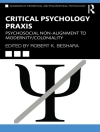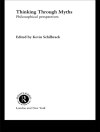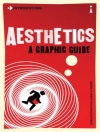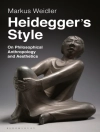Spinoza’s thought is at the centre of an ever growing interest. Spinoza’s moral philosophy, in particular, points to a radical way of understanding how human beings can become free and enjoy supreme happiness. And yet, there is still much disagreement about how exactly Spinoza’s recipe is supposed to work. For long time, Spinoza has been presented as an arch rationalist who would identify in the purely intellectual cultivation of reason the key for ethical progress. Andrea Sangiacomo offers a new understanding of Spinoza’s project, by showing how he himself struggled during his career to develop a moral philosophy that could speak to human beings as they actually are (imperfect, passionate, often not very rational). Spinoza’s views significantly evolved overtime. In his early writings, Spinoza’s account of ethical progress towards the Supreme Good relies mostly on the idea that the mind can build on its innate knowledge to resist the power of the passions. Although appropriate social conditions may support the individual’s pursuit of the Supreme Good, achieving it does not depend essentially on social factors. In Spinoza’s later writings, however, the emphasis shifts towards the mind’s need to rely on appropriate forms of social cooperation. Reason becomes the mental expression of the way the human body interacts with external causes on the basis of some degree of agreement in nature with them. The greater the agreement, the greater the power of reason to adequately understand universal features as well as more specific traits of the externalcauses. In the case of human beings, certain kinds of social cooperation are crucial for the development of reason. This view has crucial ramifications for Spinoza’s account of how individuals can progress towards the Supreme Good and how a political science based on Spinoza’s principles can contribute to this goal.
Andrea Sangiacomo
Spinoza on Reason, Passions, and the Supreme Good [PDF ebook]
Spinoza on Reason, Passions, and the Supreme Good [PDF ebook]
Compre este e-book e ganhe mais 1 GRÁTIS!
Língua Inglês ● Formato PDF ● Páginas 272 ● ISBN 9780192587145 ● Editora OUP Oxford ● Publicado 2019 ● Carregável 3 vezes ● Moeda EUR ● ID 8103718 ● Proteção contra cópia Adobe DRM
Requer um leitor de ebook capaz de DRM












